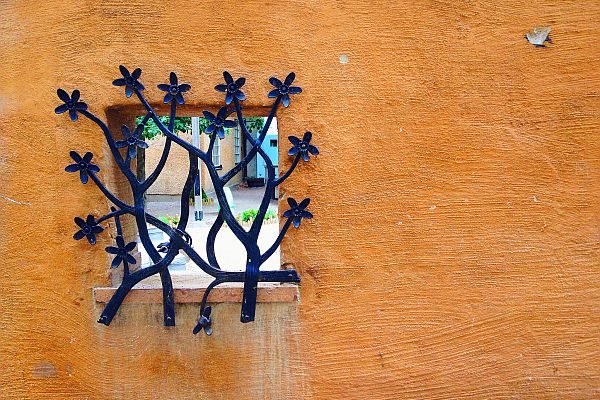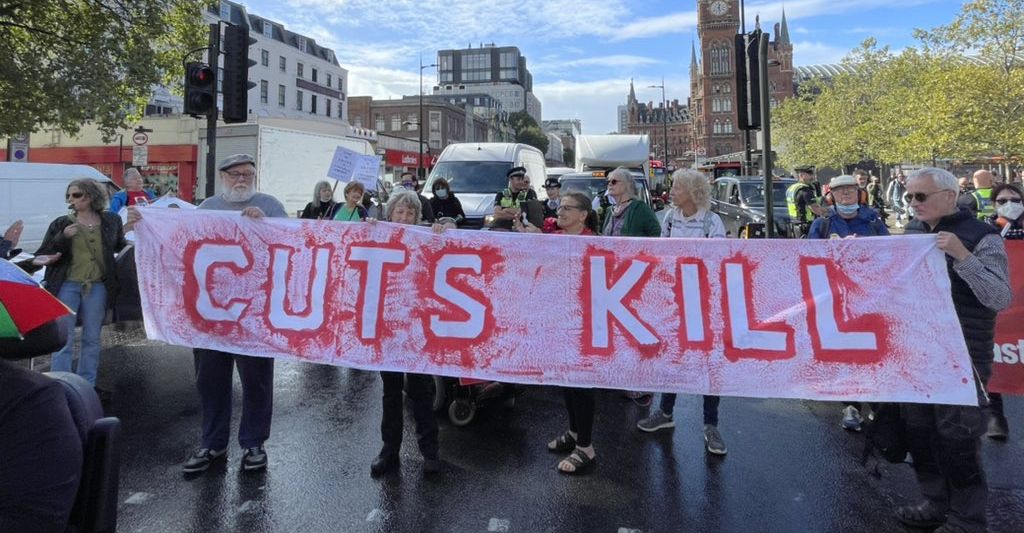Dear kindly Swedish couple – I’ll call you Mrs and Mr Andersson,
It was around 9:45 pm on Friday when you found me, in front of a petrol station in the sleepy Swedish town where I was living. I was consulting my phone a lot, white cane in tow, turning around and trying different directions. You thought I looked lost and you were quite right.
I explained to you, in halting Swedish, that I got off at the wrong train station, one stop after my usual one. You don’t know it, but I’ve only done that twice in two months of regular travel. The first time, it was because riding a much older train, not fitted with doors that beep when opened, caught me unawares. This time it happened because the train was more crowded and noisier than I’d ever experienced it, and I simply wasn’t proactive enough about pushing through the bodies to locate, and exit, the door on time.
Anyway, here we are, hovering outside your car, and you’ve kindly offered me a lift, which I wish I didn’t need to take. But this quiet town is no place for me to be wandering around at this time of night, with about eight kilos of laptop, Braille display machine and groceries weighing on my shoulders, and 3 per cent of remaining phone battery to ration. I’ve just spent fifteen minutes trying to find meaning in Google Map’s cryptic instructions, navigating through zig-zagging paths and roundabouts. We’re not close enough to a main road for me to pick out traffic sounds to follow and I am on the verge of googling one of the town’s exorbitant taxi providers before my phone gives up the ghost.
As a young woman travelling at night, I am programmed to treat offers of lifts from strangers with suspicion. But I take you up on yours anyway. I thank you, give you my address and get into the back seat.
You are friendly enough to stump up some small-talk in the five minutes we will now share, and I appreciate the sentiment.
‘Where are you from?’
‘New Zealand.’
‘What are you doing in Sweden.’
‘I’m studying investigative journalism.’
‘You’re very brave! Coming all the way here.’
Before I go further, being committed to accuracy, I need to say that – frazzled as I was – I may be conflating this conversation with one of many others which went down precisely this unbidden path of well-meant observation. What I am certain about is that I’ve lost track of the number of times I’ve been told I’m brave, particularly after my international status becomes clear. I would estimate that it happens once a week.
Thus, I write to you, Mr and Mrs Andersson, as a way of writing to all the people who could have been you, discovering a lost-looking foreign blind young woman in that moment. I want to tell you what I hear when you tell me I am brave.
For starters, I hear you spotlighting my blindness. Perhaps courage is involved in anyone’s decision to move to the other side of the world and live in a new country, except I struggle to imagine you offering the same intended complement to my sighted doppelganger. She’s a white, Eurasian-looking young woman without a visible disability, and that’s the sum total of your knowledge about her. To her, you’d be asking what she thought of Sweden and waxing lyrical about your love of New Zealand (that’s not obligatory, incidentally).
I also hear that you want to show me respect and admiration. But the mundane truth is that I do nothing more than employ the standard human practice of attempting to summon courage in the moments when hanging onto my dignity requires emotional effort, such as when I discover I’m stranded at an unfamiliar and deserted train platform. I give bravery no special consideration otherwise.
Finally, I hear you reminding me, unawares though you are, that blindness does indeed exacerbate my vulnerability. ‘They’re right about the damn bravery,’ responds an unbidden voice in my head. ‘What choice do I have but to put on a brave face when not being alert enough to exit a crowded train on cue without a charged phone leaves me feeling careless, small and alone?’
It’s true: Somewhere in the mix of curiosity and disorientation and exhilaration and homesickness and fascination I feel about moving countries, there is resentment. Resentment that as a disabled person, attempting to avoid unplanned moments where I have to swallow my pride requires extra hard work. Resentment that, as you pulled into my driveway and I assured you for the second time that I did indeed have a house key, you still sounded genuinely concerned as you told me how dark it was inside and that no one was home. I’m twenty-four, by the way.
I also want you to appreciate that my experiences of moving to Sweden are colourful and that, thankfully, resentment is not a prominent shade, most of the time. The audio announcements for transport stops here are fairly reliable and extremely useful. The positioning of the bike lanes on the footpaths, the ground surface regularly blending into the pedestrian zones for cane users, is frustrating and unnecessary. My lecturers’ efforts to make sure I’m able to participate in my courses are sincerely appreciated. Some of my classmates are perceptive, intelligent, beautiful friends around whom I feel free to be myself. My inability to learn Swedish via listening to TV and staring at subtitles is occasionally irksome, but at least I’ve always got a trusty, if robotic, screen-reader to hand to tell me how to pronounce the language’s bamboozling letter combinations.
But I am writing to you because I know in my bones there will come a moment when I will feel vulnerable again. In that moment, I want someone to reassure me that we all forget useful things like phone chargers sometimes, and to tell me, only partly joking, that one hasn’t truly been exploring till they’ve stood alone at night in an unfamiliar, deserted town path with no back-up plan. When I am beating myself up for not being a perfect disabled person, you would help to restore my spirit by reminding me that I am, after all, only human.
With hope and appreciation from the blind investigative journalism student, climate justice campaigner, Irish music lover and stubborn but loyal daughter/friend who you kindly deposited home that one time,
Áine
Image: A window, somewhere in Sweden. Carlos Müller Villanueva.






